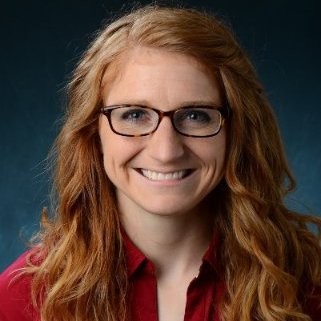
Emily Beck: Building Human Organs & Pursuing a Childhood Dream
It is our honor at TBG highlight one of our clients, Emily Beck, as part of our recognition of women leaders in honor of Women’s History Month. Emily is Director of R&D at Miromatrix, a life sciences company pioneering a novel technology for bioengineering fully transplantable human organs to help save and improve patients’ lives.
Emily has held a variety of roles at Miromatrix since joining the company four years ago. Her team of 14 members works on all organs in the “upstream” phase of development, meaning they develop and modify the bioengineered organs to make them operational.
Emily’s story of her career inspiration is heartwarming. She recalls watching a science fiction film at the tender age of 14, which included a scene where organs were being grown in a lab. A lightbulb went off for Emily at that moment, and she knew she wanted to build human organs. Emily completed her undergraduate studies at Kansas State University, and then went on to do graduate and post-graduate work at the University of Kansas and the University of Colorado. After starting her career in an academic lab, Emily wasn’t sure where her career passion would take her; fortunately, she got the opportunity to work as in intern at an industry organization and confirmed her enjoyment in a role in that sector.
Toward the end of her academic career, Emily was delighted to learn of a company in the Twin Cities that was building human organs. She quickly got over her hesitation about Minnesota winters and joined the Miromatrix in 2019. Her progression within the company has been swift, but Emily did not set out to become a leader at Miromatrix. She joined a small team as a senior scientist and developed a passion for “watching science grow and progress.” As Emily explains it, as she immersed herself in her work, and in addition to fulfilling her childhood dream of building organs, she also realized a passion for helping people grow. Emily thrives on helping team members solve problems and discover their potential. So as the team at Mitromatrix grew, Emily sought out opportunities to lead projects and eventually accepted formal roles that were offered to her.
As a leader, Emily defines her approach in creating an environment where everyone can feel comfortable being themselves; with a laugh, Emily describes herself as “goofy.” She is committed to opening up doors for others to be vulnerable and pushes herself to be vulnerable as an example. Emily understands that the key to working together as a team and achieving their goals, which are critical to human advancement, is to create a space where each team member feels comfortable being their authentic selves and voicing their opinion to solve challenging problems. In that respect, Emily recognizes the importance of diversity, equity, inclusion, and belonging on her team and within her organization in order to work successfully toward their mission. Within her first few years at Miromatrix, Emily related the story of reaching beyond the silo of her kidney team to learn more about how other teams tackled a particular problem; by opening up to other perspectives, her team found their solution.
As a female leader in a traditionally male-dominated medical technology industry, which can often involve stressful work and long hours, Emily recognizes the importance of self-care. She shared her mantra that if you show up at work and aren’t your best self, you’re not going to be able to help others be their best selves. As an example of her emphasis on self-care, Emily led a book-club discussion at work about how you can and should take care of yourself as a leader. She follows up with her colleagues to help each other continue some of the practices they committed to in that conversation.
Emily understands the importance of building trust as Miromatrix continues to grow and evolve. She shared that trust on her team starts with her, and she can build trust with her team members by providing an open door, making sure she is approachable, and providing a safe environment. She also doesn’t promise anything that she isn’t certain she can deliver.
Executive coaching has provided essential support for Emily during her career advancement, and she smiled when she shared her wish that she could work with her coach, Ann Houser, “forever.” Emily pointed to the outside perspective that Ann offered during their coaching conversations, and the support and confidence she felt having Ann in her corner. In particular, the concept of positive intelligence which is central to Ann’s coaching philosophy made a profound impact on Emily. She shared “I come back to the ideas [from positive intelligence] on a daily basis, knowing that my former self would see things as bad or negative. Now I have the tools to think . . . this presents an opportunity. Even though things seem bad right now, I don’t see yet what good will come.”
If Emily could go back to give herself advice at the outset of her career, she would tell herself not to be so afraid, and to feel more confident about her abilities. As a female, Emily shared her tendency to feel “not as smart” as the men in the room, and thus was afraid to speak up. She admits she still works on her self-confidence, which is helpful in her ongoing journey as a leader. Her advice to other women: never question your abilities.
We’re all fortunate that Emily happened upon that science fiction movie at a young age, and that she now leads a team which is creating hope for a solution soon for so many transplant patients.




